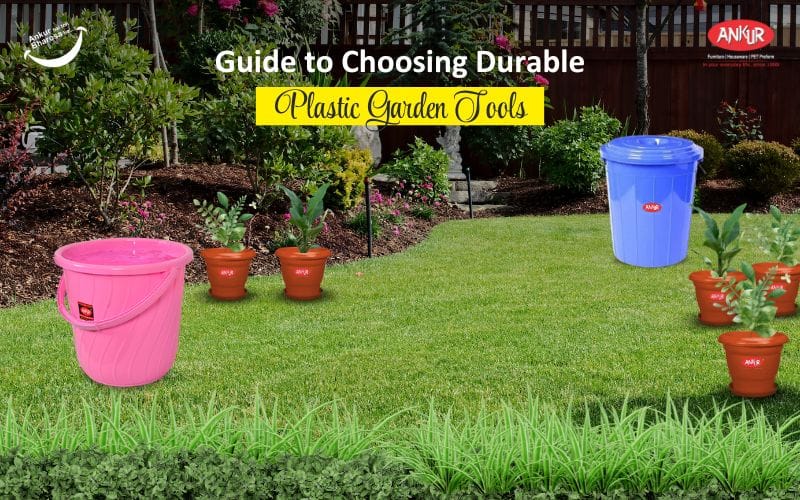Guide to Choosing Durable Plastic Garden Tools

Gardening is a delightful and rewarding hobby, but it can quickly become frustrating if your tools don’t stand the test of time. When it comes to selecting garden tools, opting for durable plastic options can be a smart choice. Let’s explore how to choose the best plastic garden tools that will serve you well season after season.
Importance of Choosing Durable Garden Tools
Having durable garden tools is essential for efficient gardening. Durable tools not only withstand the rigors of outdoor work but also save you money in the long run by eliminating frequent replacements. Plastic garden tools, when well-made, offer a lightweight and corrosion-resistant alternative to traditional metal tools.
Factors to Consider When Choosing Plastic Garden Tools
- Material Quality: When selecting plastic garden tools, prioritize quality. Look for tools made from high-density plastics that are sturdy and impact-resistant. Avoid tools that feel flimsy or brittle.
- Ergonomic Design: Ensure the tools have ergonomic designs with comfortable handles that reduce strain on your hands and wrists during use. Ergonomic tools make gardening tasks more enjoyable and less tiring.
- UV Resistance: Plastic garden tools are often exposed to sunlight, which can cause them to fade and weaken over time. Choose tools made from UV-resistant plastics that can withstand prolonged sun exposure without deteriorating.
- Tool Functionality: Consider the specific tasks each tool is designed for. A digging spade, for example, should have a strong blade and handle capable of handling soil impact without bending or breaking.
- Brand Reputation: Opt for tools from reputable brands known for their quality and durability. Research customer reviews to ensure you’re investing in tools that will last.
- Weight and Balance: Look for lightweight tools that are well-balanced. Heavy or awkwardly weighted tools can cause fatigue and strain during extended use.
- Flexibility and Resilience: Choose plastic tools that have a degree of flexibility to absorb shock without breaking. This resilience is particularly important for tools used for digging or cutting.
- Warranty and Guarantee: Check if the tools come with a warranty against defects. A good warranty reflects the manufacturer’s confidence in the product’s durability.
- Storage and Care: Proper storage and maintenance can prolong the lifespan of plastic garden tools. Store them in a dry, sheltered area when not in use to prevent unnecessary exposure to the elements.
Benefits of Durable Plastic Garden Tools
- Longevity: Durable plastic tools can last for many seasons with proper care, saving you money on replacements.
- Cost-effectiveness: Investing in quality plastic tools initially may cost more but pays off in the long run due to reduced replacement costs.
- Reduced Maintenance: Plastic tools are generally low-maintenance compared to metal counterparts, as they don’t rust or corrode.
- User Comfort and Safety: Ergonomic designs of plastic tools provide comfort during use, reducing strain and the risk of injury.
Types of Plastic Garden Tools
Plastic garden tools come in various types, including shovels, rakes, pruners, watering cans, trowels, weeders, planters, and pots. Each tool serves a specific purpose in the garden and should be chosen based on your gardening needs.
- Comparison with Other Materials: Plastic garden tools have advantages over other materials like metal and wood. They are lightweight, resistant to rust, and often more affordable. However, they may not be as durable as metal tools for heavy-duty tasks.
Tips for Maintaining Plastic Garden Tools
To prolong the life of your plastic garden tools:
- Clean tools after each use to prevent dirt buildup.
- Lubricate moving parts regularly to prevent stiffness.
- Store tools indoors or in a shed to protect them from extreme weather conditions.
Environmental Impact of Plastic Garden Tools
Plastic tools raise environmental concerns due to their non-biodegradable nature. Consider recycling old tools or opting for eco-friendly alternatives made from recycled plastics or sustainable materials like bamboo.
Conclusion
Choosing durable plastic garden tools is crucial for a successful gardening experience. By prioritizing quality, ergonomic design, and proper maintenance, you can ensure your tools remain functional and reliable for years to come.
